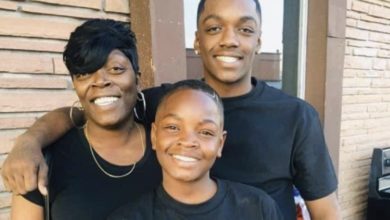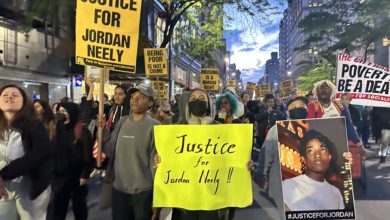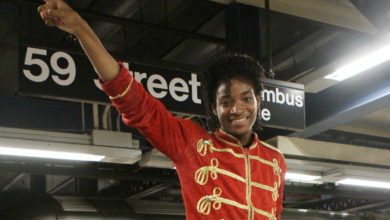Chokwe Lumumba, “America’s Most Revolutionary Mayor,” a man who refused to renounce his revolutionary past–or present—has passed on. Coming so closely on the heels of the death of Amiri Baraka, the death of Lumumba has the feeling not simply of the passing of a person but of a moment in time; gone is another one of the living links for young revolutionaries to the dreams, experiences, successes and mistakes of the movements of the 60s and 70s that inspire us all.
Chokwe Lumumba was not only an organizer and activist, but also a talented lawyer who often took on the cases of the most stalwart fighters for Black liberation, as well as those wrongfully persecuted by the capitalist criminal injustice system. From his youth right up until his death he was unwavering in his beliefs, and consistently built organizations that helped advance people’s movements. From the Republic of New Afrika, to the New Afrikan Peoples Organization and the Malcolm X Grassroots Movement, his organizational legacy continues to live on.
Son of Detroit
Chokwe Lumumba was born in 1947 in Detroit. Even as a child he was involved in the Black liberation movement, involved by his mother in activities to raise money to support the Southern freedom movement in Mississippi. It seems very appropriate that Detroit birthed Chokwe Lumumba. The city has a long and deep history as a center for the Black liberation movement. The Nation of Islam was founded in Detroit, as was the pioneering Freedom Now Party led by Rev. Albert Cleage , one of the first advocates of a Black liberation theology. Detroit was the spiritual home of Motown, and its New Bethel Baptist Church was the home of Rev. C.L. “Million Dollar Voice” Franklin, pioneering preacher, and gospel stalwart whose daughter Aretha would become a famous daughter of Detroit herself.
Detroit was a cradle of the American labor movement, which produced prominent Black labor leaders and gave Robert Williams his first taste of activism while confronting racism in the war industries with Communists and other radicals.
Detroit foreshadowed the March on Washington when Dr. Martin Luther King led over one hundred thousand in a march for Freedom. Detroit was also where Malcolm X forever memorialized the distinction between “house” and “field” Negroes in his now iconic “Message to the Grassroots.” Detroit helped incubate some early radical groups in the Black liberation struggle like the Group on Advanced Leadership and was an arena of action for the Revolutionary Action Movement.
A Conscious New Afrikan
It is no surprise then that a stalwart liberationist such as Chokwe Lumumba emerged from this revolutionary primordial soup. As a student at Western Michigan University he was fully engaged, taking part in the occupation of a building following the assassination of Martin Luther King Jr. The occupation demanded the hiring of more Black faculty as well as scholarships to give more Black students the opportunity to attend.
Attracted to radical activity Lumumba became a member of the Republic of New Afrika . The RNA recognized—as does the Party for Socialism and Liberation—that Blacks in the United States are a distinct people, a nation, forged in the Black Belt South. As such the RNA fought for the establishment of an independent Black Nation in five states in the deep South, as well as being staunch advocates of reparations and human rights for all peoples.
Their radical orientation placed them in contention with the capitalist class which targeted the RNA heavily as a part of COINTELPRO. Lumumba became the vice-president of the RNA and in the early 70s moved to Jackson, Mississippi helping to coordinate RNA activities there, including confronting the intense harassment against the RNA by state and federal authorities.
Returning to Detroit in the mid-1970s Lumumba became one of the nation’s most prominent radical lawyers taking on a number of crucial cases. He served as a key lawyer in the “Brinks trial” where after outrageous interference from the capitalist courts he was allowed to represented Fulani and Bilal Sunni Ali, RNA members who were falsely accused of involvement. Lumumba represented Assata Shakur, Tupac Shakur, members of the Pontiac 16 prisoners who had risen up against exploitative conditions, and was co-counsel in the Geronimo Pratt case.
After returning to Jackson in the late 1980s he became involved in a significant number of cases where the racist criminal injustice system had vctimized the poor and Black. Most notably he was able to secure the release of the Scott Sisters who were sentence to life for an $11 dollar robbery. During this time Lumumba was involved in building institutions to further the cause of Black liberation, in the middle 80s participating in the founding of the New Afrikan Peoples Organization and in 1990 the Malcolm X Grassroots Movement. He also participated as counsel for the Mississippi Immigrant Rights Alliance, and supported labor struggles.
Running for City Council in 2009 he became more of a force in local politics as a highly respected voice for human rights and justice for all peoples. His election as mayor was a piece of the Malcolm X Grassroots Movement’s “Jackson-Kush Plan,” which sought to use peoples assemblies and cooperatives to build popular power for the oppressed in Jackson and other Black-belt environs.
Sadly we will never get to see what the full course his mayoral term would bring, given the interesting contradiction between an unabashed radical winning the mayoralty of a prominent city in such a reactionary region. However, though we have lost the person of Chokwe Lumumba, his legacy will continue to live on as a force in the Black liberation movement and the revolutionary movement more broadly.
Chokwe Lumumba Presente!






